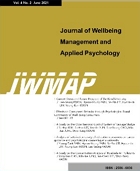 E-ISSN : 2586-6036
E-ISSN : 2586-6036
Abstract
Purpose: This study discusses how Indonesia's response to the Corona Virus Disease-19 pandemic based on the perspective of housing policy capacity which consists of resources, organizations, and networks, politics, systems, and finance. Research design, data and methodology: This study used a qualitative method through a literature review. Data collection techniques were carried out by searching various sources and literature related to housing capacity theory and various data on Indonesia's response to the Covid 19 pandemic. Based on a literature review, this study adapted and modified the five components of capacity, namely resource capacity, organizational and network capacity, political capacity, system capacity and financial capacity in Indonesia in responding to the Covid-19 pandemic. Data analysis used analytical themes which consist of understanding the data, generating initial codes, looking for themes, reviewing themes, defining and naming themes, producing of manuscripts. Results: The results show that the weakness of the system capacity greatly affects Indonesia's housing policy capacity in responding to the Covid-19 pandemic and on the other hand the five housing capacities are an integrated process within the housing policy framework in Indonesia, especially to overcome the Covid-19 pandemic. Conclusions: The findings of this study are the importance of building a system capacity that is directly integrated with housing policy and the strengthening of the resources capacity, organizations, and networks, politics, and finance in the context of Indonesia's housing policy, especially in dealing with the Covid-19 pandemic situation.
- keywords
- Indonesia, Housing capacity, Pandemic Covid-19
- Downloaded
- Viewed
- 0KCI Citations
- 0WOS Citations













